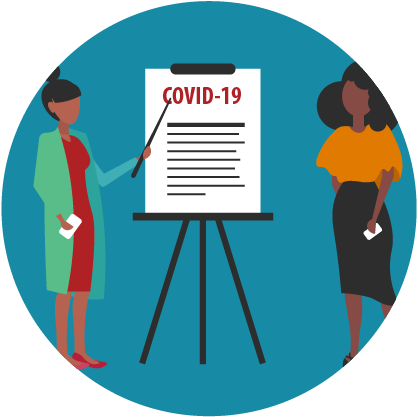Public health emergencies, such as the outbreak of coronavirus disease 2019 (COVID-19), are stressful times for people and communities. Fear and anxiety about a disease can lead to social stigma toward people, places, or things. For example, stigma and discrimination can occur when people associate a disease, such as COVID-19, with a population or nationality, even though not everyone in that population or from that region is specifically at risk for the disease. Stigma can also occur after a person has been released from COVID-19 quarantine even though they are not considered a risk for spreading the virus to others.
Some groups of people who may be experiencing stigma because of COVID-19 include:
- Persons of Asian descent
- People who have traveled
- Emergency responders or healthcare professionals
Stigma hurts everyone by creating fear or anger towards other people.
Stigmatized groups may be subjected to:
- Social avoidance or rejection
- Denials of healthcare, education, housing or employment
- Physical violence.
Stigma affects the emotional or mental health of stigmatized groups and the communities they live in. Stopping stigma is important to making communities and community members resilient.
Everyone can help stop stigma related to COVID-19 by knowing the facts and sharing them with others in your community.
Helping yourself and others cope with stress can make your community stronger. Learn about coping with stress during the COVID-19 outbreak.

